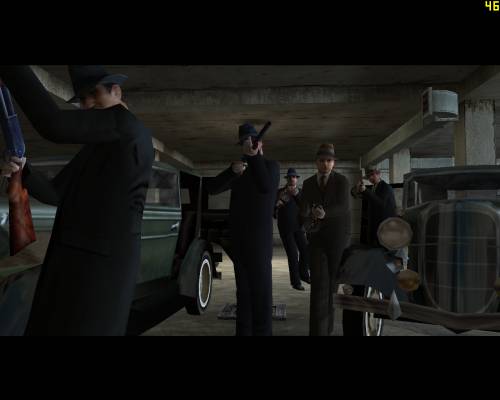In
the early 1980s, Paramount Studios began investigating the video gaming
industry as a possible outlet for helping it revive its Star Trek
property, in conjunction with a more focused movie line and perhaps even
a new television show. Given that Trekkies were often techies, it made
sense to try a PC game or two. Alan Peavey, who had experience creating Trek MUDs on his own time, was hired for “Enterprise Games’s” fledgling effort.
Star Trek: The Game was....not a success. It met with the same reaction as Star Trek: The Motion Picture, with mixed grudging relief and disappointment. An inexplicable attempt at a Star Trek vocabularly
game also bombed, and Enterprise Games began sliding into debt.
“Look,” Peavey said in an interview, “I’m just throwing stuff at the
wall and seeing what sticks at this point.”
It was a spacetime flight simulator that made Enterprise Games’ fortune. The game was a solid hit, spreading beyond the Trek fandom, and Flight Command
would be the firm’s longest running and most doted on franchise. It
wasn’t until Peavey decided to develop for the NES, however, that he
found a solid hit. Star Trek: The NES Game took
the premise of the original game and greatly refined and improved it,
leading to overnight success. The firm would add a lead engine tech,
Patrick Baldwin, and
Evelyn Riviera, a supplemental designer. Baldwin and Peavey
collaborated on creating the Roddenberry game engines (I-V), as well as
the Kirk engine that saw them enter the 2010s.
The firm’s winning franchises included the Fleet Command series, simulators that allowed players to take the conn of their favorite starships from the series and books. Aside from the flagship Command title, which was released for every major platform as they appeared, there were also combat-focused titles in this series like Defiant, Excelsior, and of course Enterprise. That record-breaking game introduced
the first Kirk engine, a next generation gaming engine that allow for
dynamic worlds, stunning 3D graphics, and intuitive multiplay. A separate series about ground combat was also a financial success, although diehard trekkies often scoffed at the wholly original ground-based military equipment. There were also a couple of sleeper hits, including Articles of Federation, a cosmic political simulator; Deep Space Nine, a city-starbase simulator; and Ro Laren, an innovative thief simulator that followed the young officer as she performed missions for the Marquis. That and Roberta Lincoln, a spy adventure game, marked the industry’s first major female main characters.
There were also absolute bombs, as Peavey was committed – along with continually improving the flagship series – to exploring new frontiers. Rules of Acquisition, a Ferengi-oriented business sim, failed memorably, perhaps because, as one snarky reviewer put it, no Star Trek fan has any idea how market a economics actually work. Other notable failures were the dance game Keeping Up with the Cardassians, so awful Paramount refused to allow it to carry the Star Trek title on the box art, and Tribblecare. The last was a petcare game marketed for iOs devices. “I’m not sure what the trouble with Tribblecare was,” said Peavey. “I see parents letting their kids play game on their iphones
all the time. Maybe it was just too hard to keep them from multiplying
exponentially and then starving en masse? We tried to make it
realistic. Trek fans are really critical if you stray from canon.”
When Alan Peavey finally retired this past December, he
commented on how proud he was of the work he had done, although he did
admit to mistakes. “We should have expanded more once we met success – I
mean, we’re competition with mammoth publishers and we’re a three man operation! It's just...well, we had a good team, nicely balanced, and I didn’t realize we were falling behind until..um, a few months ago.” The firm has expanded slightly since that realization. Although Enterprise Games 1 could have broken into the triple-A titles with more aggressive management, it does have beloved series and cult favorites to its credit. Other industry leaders praise Enterprise Games 1 its variety of games and persistence. An anonymous developer said, “They designed some of the weirdest games – do you remember the Wild West one, the one based on Spectre of the Gun – but they could be fun.”
Under a new manager, the firm will no doubt boldly go where no developer has before.
=================
Like "Alan", I literally didn't realize my mistake until a couple of months before the 35 year endgame mark. I was supposed to hire more people, then move to a higher office, then make a research lab --- well, Alan Peavey will code again!















































